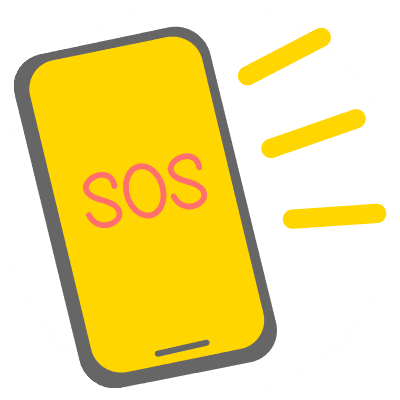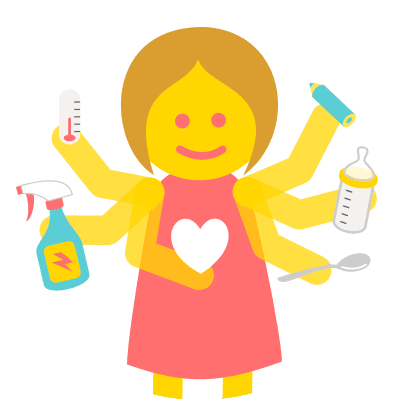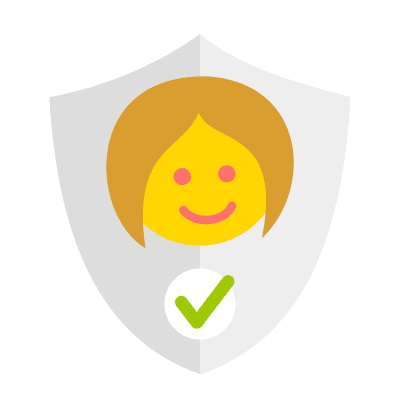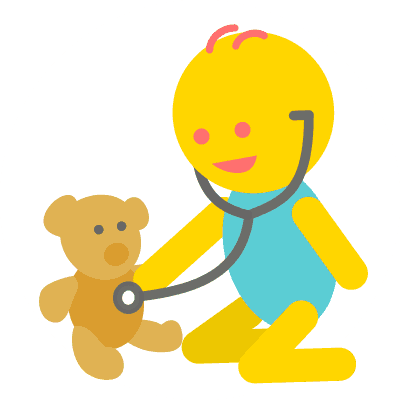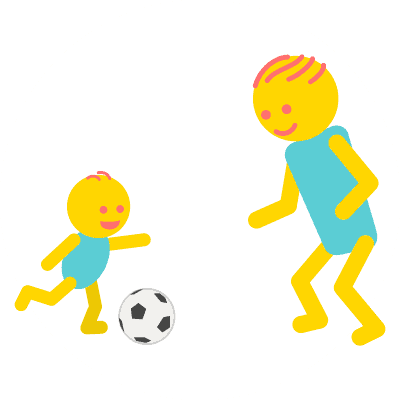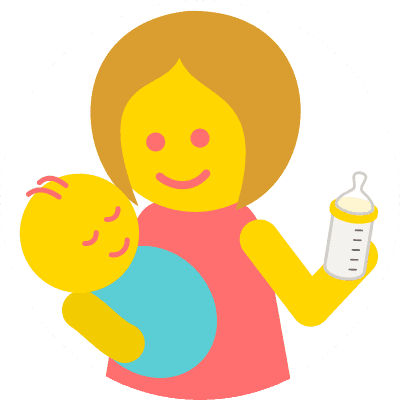Be a Safe Babysitter! (Essential Safety Tips you Should Know)
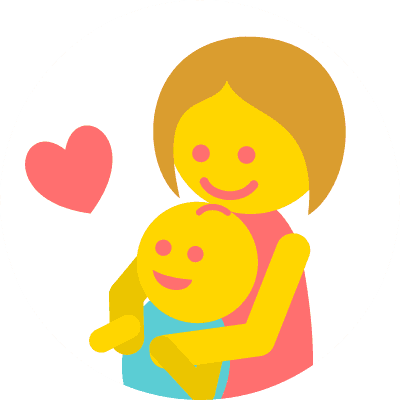

Written & Illustrated by
Matthew James Taylor
Kidsit Founder, General Manager

Babysitting Safety Video by
Lydia Kutz
Babysitter, Infant Swimming Resources Instructor
Key Takeaways
- Prioritise Safety: Always keep children within sight and be aware of your surroundings to protect them from potential hazards.
- Be Prepared for Emergencies: Know basic first aid and CPR, and have emergency contact numbers readily available.
- Prevent Choking Hazards: Be cautious of small toys, certain foods, and other items that could pose choking risks.
- Maintain a Safe Environment: Ensure that household chemicals, medications, and sharp objects are out of reach of children.
- Communicate with Parents: Discuss any allergies, routines, and emergency procedures with parents before babysitting.
Babysitting can be a super fun job but it’s also serious business. The parents are trusting you with their child. Safety is a major concern. It’s amazing what young kids come up with for fun that can lead to a broken arm or worse. You have to think differently about the world in order to keep them safe.
So how can you be a safe babysitter? To be a safe babysitter you need to be knowledgeable of basic first aid and be able to keep young children within eyesight. You need to be aware of your surroundings to protect the children from environmental hazards and know how to handle an emergency situation.
Let’s go over what all this means; what environmental dangers can pose a threat to the children, as well as how to handle an emergency situation.
Safe Babysitting
Although taking a first aid course is not required in most areas, it’s still a good idea. They have basic first aid courses that focus solely on teaching you the Heimlich maneuver and cardiopulmonary resuscitation (CPR) training.
See my recommended babysitting courses.
This sure is a handy thing to know considering how easily kids manage to get things lodged in their throats. Usually, a firm smack on the back is all that is needed. But if they still can’t breathe, then knowing the Heimlich maneuver could save their life!
In addition to training we also highly recommended you bring a portable first aid kit (see the best kit for babysitters here).
Kidsit babysitting statistics
11.95% of babysitters take a portable first aid kit with them when babysitting.
(Babysitting statistics calculated weekly from our live member data — Updated 16 Feb 2026)
Kids need to be watched. You don’t necessarily have to be their shadow 24/7 but it’s necessary to check in on a 3-year-old playing in her room. She could start off playing Barbies but then you might find her hanging on top of her bookshelf reaching for a book.
The medicine cabinet and household chemicals should be out of reach of kids, but sadly that is not always the case. Kid’s medicine tastes pretty good. They usually add some sugar to make it easy enough for kids to willingly take it. Because of this, a kid might want to down a whole bottle of medicine. Obviously, that’s not good.
So many kids have food allergies now. It can range from a sensitivity which could cause a tummy ache to a severe allergy and a need for an EpiPen and a hospital visit. Ask the parents what their allergies are and read labels to make sure that a particular food is safe for the child. If you’re not sure, do some quick research on the internet.
Emergencies usually don’t happen but if they do you need to know where the fire exits are. Also, you should have contact numbers of the local police, fire department, and of course the parents.
You have to think differently about the world in order to keep the child in your care safe. Let’s talk about some specific things that have caused harm to kids in the past and how you can be prepared for them and keep the kid safe.
How to Prevent Choking
We all know to phone for help in an emergency (see the number for your country below). But what if the child you are watching is choking on a grape and cannot breathe? Did you know that after 6 minutes of not breathing the brain begins to die? Knowing CPR and the Heimlich maneuver would force that grape out of her mouth and keep oxygen flowing to her brain.
Make sure you know the emergency number in your country:
| Country | Emergency number |
|---|---|
| United States | 911 |
| Canada | 911 |
| United Kingdom | 999 |
| Australia | 000 |
| New Zealand | 111 |
Download our free emergency contact sheets so you have all the important numbers in case of an emergency!
The most common things that kids choke on are these:
- Toys smaller than a golf ball
- Balloons
- Hot dogs
- Grapes
- Raw carrots
- Nuts
- Raisins
- Hard or gummy candy
- Spoonfuls of peanut butter
- Chunks of meat or cheese
- Popcorn
The parents may have some rules on what they can or can’t eat or play with. Of course, follow those rules, but you might want to have some rules of your own.
For example, you might not allow small children to play with tiny toys. If there is more than one sibling, it’s common to see big kid toys around the house like tiny Lego, small bouncy balls and action figures. While you’re there, you could put them in a closet, out of sight.
All food should be cut up into pieces. Grapes should be cut in quarters, hot dogs-sliced lengthwise and into pieces, and vegetables should be cooked. Make it a rule, if it’s not already, to eat at the table and not walk around. A nice rule that has a dual purpose is not to talk or laugh with food in your mouth. It’s disgusting for the person across from the offender, plus it increases the chances that the child will choke on their food.
Keep the Child Within Eyesight
We talked about checking in with the kid when they’re in the house playing in a different room. But the attention on the child should be increased when you leave the house. When you go to the store, park, or any place that has wide open spaces, you have to be like an eagle.
Kids can quickly get lost in a department store. They can be kidnapped or harmed too. I’ve seen kids running with sticks and going down slides with them. Please make sure that it’s not the kid that is under your care.
Medicine and Chemicals Should Be Put out of Reach
Lydia has been working in the childcare industry for 15 years, and owned a childcare agency in Florida, USA for 7 years. In this video she talks about the dangers of household poisons that kids can be exposed to if you're not careful, how to prevent poisoning accidents from occuring, and what to do in an emergency.
You might be thinking, why would a child ever want to drink medicine or cleaning supplies when they have juice in the fridge? Some kids really like the smell of medicine. Most kids’ medicine smells like candy. A lot of floor cleaner smells great too. But even if the kid is not enticed by the smell, she may be playing doctor or having a tea party.
Medications are usually in a medicine cabinate, they're hopefully in a top shelf in the kitchen somewhere, but there are families who keep their medications under the sink in their bathroom or in drawers in the bathroom which are at child level. They're able to get into it.
For laundry detergent, my laundry room is in my garage, some families have a laundry room in their house, if that's the case, I like to keep the door shut, there's no reason for the children and I to go in there while I'm babysitting.
I scan the area, I scan the kitchen, I scan the bathroom, I scan the laundry room to see if there's child-proof locks on any of the cabinets, because yes, I am taking care and watching the child but to know that there is an extra added layer of protection between the child and these poisons is helpful and stress-relieving. But if I look and there isn't any locks on these cabinets then I really need to be aware of where the child is and what they're doing at all times because they can get into these things.

Babysitter, Infant Swimming Resources Instructor
St Petersburg, Florida, United States
- If the child does consume chemicals follow these steps:
- If there’s any in her mouth make her spit it out
- If she’s unconscious, not breathing, or having seizures call your country's poison help number
- If she’s conscious call the poison help number in your country
| Country | Poison help number |
|---|---|
| United States | 1-800-222-1222 |
| Canada | 1-800-268-9017 |
| United Kingdom | 111 |
| Australia | 1800 875 204 |
| New Zealand | 0800 764 766 |
Once you call poison control they are going to ask you a series of questions. The name of the child, the weight of the child, the age of the child, what symptoms they're having. Don't wait to call poison control if you suspect something was consumed, call right away! They're very good at letting you know what symptoms to look for in a child. They're more than happy to talk you through the situation and help you and go through step by step what should happen.
Sometimes they're going to ask you to bring this child to the ER, but most likely they're going to have you monitor the child from home. After you have called poison control they usualy call you back within an hour to check up and look for those symptoms they asked you to look for.
After you're done with poison control call mom and dad. You need to let them know what's going on as well, that you called poison control, this is what I think they got into, this is what they were telling me to do, all of that.

Babysitter, Infant Swimming Resources Instructor
St Petersburg, Florida, United States
Educate yourself on any food sensitivities or allergies that the child might have.
These are the most common food allergies in kids:
- Milk
- Eggs
- Soy
- Peanuts
- Wheat
- Shellfish
- Fish
- Nuts
Some children have a sensitivity to one or more of these items. This means that their body can’t properly digest the food. This will cause some degree of stomach issues. Kids that are allergic to one or more of these items will have an immune system reaction soon after eating the food. It can cause hives or swollen airways.
Talk to the parents about this and they will let you know what their kid can and can’t eat. If there is a food sensitivity or allergy you have to make sure to read labels. For example, if a kid has an allergy to gluten, did you know that Twizzlers have gluten in them?
Being safety conscious is an absolute must if you’re going to be a babysitter. It takes some time to wrap your head around all the potential dangers that kids often get into. But being aware of basic first aid, how to avoid choking hazards, keeping a close eye on the child, and being aware of food allergies will prepare you well.
An important part of being a safe babysitter is to keep yourself safe too, read our article how to stay safe when babysitting for more information.
If you're planning a career babysitting or childcare, you may consider getting nanny insurance, see our article: Do babysitters or nannies need insurance to learn if this is right for you.
Related Questions
What are some fire safety tips for babysitters?
Before the parents leave you should have a list of important numbers. You need the numbers of the parents, a neighbor, the fire station, the police, and an ambulance. Plan an escape route. Know an alternative exit to each room.
Try to avoid a fire. Don’t let children play with matches or candles. Keep them away from the stove. Know what cooking materials can be used in a microwave.
Refer to our article: Fire safety tips for babysitters for an in-depth guide.
What are some qualities that make a good babysitter?
- Dependable and responsible
- Creative
- Loves kid
- Patient
- Experienced
- Energetic


